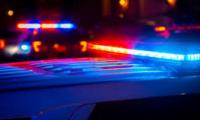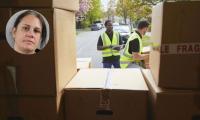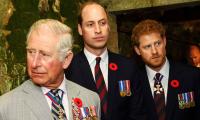‘Torture hinders broader human uplift in Pakistan’
LAHORETorture has permeated into everyday life of Pakistanis affecting and hampering any attempt to boost the genuine and broader human development in Pakistan. It has direct tragic influence on the daily lives of individuals, families and vulnerable communities. While torture is hitting hard on poor men, women, excluded and voiceless
By our correspondents
June 27, 2015
LAHORE
Torture has permeated into everyday life of Pakistanis affecting and hampering any attempt to boost the genuine and broader human development in Pakistan. It has direct tragic influence on the daily lives of individuals, families and vulnerable communities. While torture is hitting hard on poor men, women, excluded and voiceless populations, it has also become an instrument of terror and a fear factor for Human Rights defenders in Pakistani society.
The victims are threatened into silence and even if someone does want to report, there is no legal mechanism to help the victim. Therefore, in the absence of an effective legislation, torture in custody is going to become a serious problem affecting the rule of law in Pakistan. State must respect and protect human rights.
This was the crux of the views expressed by speakers at a civil society consultation jointly organised by Anti-Torture Alliance (ATA) Pakistan, Potohar Organisation for Development Advocacy (PODA), European Union (EU), Human Rights Commission of Pakistan (HRCP) and Asian Human Rights Commission (AHRC) in connection with International Day in Support of Victims of Torture on Friday.
Sameena Nazir, executive director PODA speaking on the occasion, said torture destroyed trust in the law enforcement agencies and ruptured the link between state and society.
State must respect and protect human rights. In wake of recently acquired GSP Plus status for Pakistan, the level of State obligation for the effective compliance of the UNCAT has further increased. The state report on the progress of compliance regarding 27 UN conventions including UNCAT is also due within next six months. Therefore, it has become all the more important for the government to take practical steps towards elimination of custodial torture. On this occasion, a resolution was also passed.
Bushra Khaliq, Executive Director WISE, said over 80% persons were tortured during police custody. About 72% did not report because of the fear of reaction from police. About 44% were sexually abused too in custody. Over 60% believe that police torture detainees to extract bribe.
About 67% favour the need for law against torture while another said law was needed but lobbying for it would not yield results.
Dr. Khurram Sohail Raja, head of Forensic Medicine, Punjab Medical College Faisalabad said in 2014 about 330 detainees were tortured in Faisalabad district in year 2014 while 51 were killed in extra judicial actions. He shared the impacts of different methods of torture used by the police during the investigation about detainees’ psychological conditions. Police lack methods of evidence collection and preservation. He stressed the need for joint efforts to combat the menace of torture.
Abid Saqi, senior advocate and former President Lahore High court Bar Association, said police in Pakistan still following colonial model, which meant to control masses rather than serving them. There is no system of much-needed civilian control of police.
There is general desensitisation of the lower judiciary towards the use of torture by police and its impact on the very people the judiciary is meant to protect. When the prisoners testify that they have been tortured while in custody the courts ignore the testimony and no action is taken. This provides legal impunity to the perpetrators of torture. In some cases where judges take action, police violate the orders of the court.
Lack of scientific approach/method of investigation coupled with poor public prosecution department has aggravated the problem, he added.
Riaz Fatyana, former Chairman, Parliamentary Commission for Human Rights, said the worst were Sindh police, however, Punjab police were on the top.
The police in KPK were much improved now. Pakistan ratified the United Nation’s Convention against Torture (UNCAT) on 23rd of June 2010, but to date no law was enacted to criminalise the illegal practice of torture. Pakistan next report (UPR) on compliance of the UN conventions is due in 2016, but the government seems no ready to submit this report.
He welcomed the formation of National Human Rights Commission. Per Police Order 2002, Public Safety Commissions should be revived. Police screening is need of the hour. Any law on torture must have compensation for the victim, he added.
Waqar Mustafa of the HRCP said mere ratification of the UN conventions or withdrawal of the reservation was not sufficient as torturing was a practice deeply entrenched in the law enforcement system of Pakistan.
There is not even a single mention of word “torture” in the entire Pakistan Penal Code. So there is no law or section about torture in the Criminal Procedure Code (CPC). The HRCP has sent a letter to the parliament suggesting recommendations for the new Bill comprising rehabilitation and compensation for torture victims.
Salman Abid, regional head SPO, said the declining of different institutions was a real crisis in Pakistan. There is no accountability system in institutions.
Law enforcement bodies in Pakistan have least respect for law of the land and most importantly torture is not a crime by law in the country. In most of the cases it is the poor who faced the wrath of police and the law enforcement agencies.
On account of their socio-economical helplessness, working classes are an easy prey to the police torture whereas human rights defenders have no access to visit the police detention centres. There should be psychologists appointed at police stations and reforms should be brought about in the institutions.
Joseph Francis from CLASS remarked the police system had become redundant and politicised. The rulers use police to snub their opponents and settle scores.
The politicised police become unbridled and blatantly violate the law and even refuse to follow the orders of superior courts.
Torture has permeated into everyday life of Pakistanis affecting and hampering any attempt to boost the genuine and broader human development in Pakistan. It has direct tragic influence on the daily lives of individuals, families and vulnerable communities. While torture is hitting hard on poor men, women, excluded and voiceless populations, it has also become an instrument of terror and a fear factor for Human Rights defenders in Pakistani society.
The victims are threatened into silence and even if someone does want to report, there is no legal mechanism to help the victim. Therefore, in the absence of an effective legislation, torture in custody is going to become a serious problem affecting the rule of law in Pakistan. State must respect and protect human rights.
This was the crux of the views expressed by speakers at a civil society consultation jointly organised by Anti-Torture Alliance (ATA) Pakistan, Potohar Organisation for Development Advocacy (PODA), European Union (EU), Human Rights Commission of Pakistan (HRCP) and Asian Human Rights Commission (AHRC) in connection with International Day in Support of Victims of Torture on Friday.
Sameena Nazir, executive director PODA speaking on the occasion, said torture destroyed trust in the law enforcement agencies and ruptured the link between state and society.
State must respect and protect human rights. In wake of recently acquired GSP Plus status for Pakistan, the level of State obligation for the effective compliance of the UNCAT has further increased. The state report on the progress of compliance regarding 27 UN conventions including UNCAT is also due within next six months. Therefore, it has become all the more important for the government to take practical steps towards elimination of custodial torture. On this occasion, a resolution was also passed.
Bushra Khaliq, Executive Director WISE, said over 80% persons were tortured during police custody. About 72% did not report because of the fear of reaction from police. About 44% were sexually abused too in custody. Over 60% believe that police torture detainees to extract bribe.
About 67% favour the need for law against torture while another said law was needed but lobbying for it would not yield results.
Dr. Khurram Sohail Raja, head of Forensic Medicine, Punjab Medical College Faisalabad said in 2014 about 330 detainees were tortured in Faisalabad district in year 2014 while 51 were killed in extra judicial actions. He shared the impacts of different methods of torture used by the police during the investigation about detainees’ psychological conditions. Police lack methods of evidence collection and preservation. He stressed the need for joint efforts to combat the menace of torture.
Abid Saqi, senior advocate and former President Lahore High court Bar Association, said police in Pakistan still following colonial model, which meant to control masses rather than serving them. There is no system of much-needed civilian control of police.
There is general desensitisation of the lower judiciary towards the use of torture by police and its impact on the very people the judiciary is meant to protect. When the prisoners testify that they have been tortured while in custody the courts ignore the testimony and no action is taken. This provides legal impunity to the perpetrators of torture. In some cases where judges take action, police violate the orders of the court.
Lack of scientific approach/method of investigation coupled with poor public prosecution department has aggravated the problem, he added.
Riaz Fatyana, former Chairman, Parliamentary Commission for Human Rights, said the worst were Sindh police, however, Punjab police were on the top.
The police in KPK were much improved now. Pakistan ratified the United Nation’s Convention against Torture (UNCAT) on 23rd of June 2010, but to date no law was enacted to criminalise the illegal practice of torture. Pakistan next report (UPR) on compliance of the UN conventions is due in 2016, but the government seems no ready to submit this report.
He welcomed the formation of National Human Rights Commission. Per Police Order 2002, Public Safety Commissions should be revived. Police screening is need of the hour. Any law on torture must have compensation for the victim, he added.
Waqar Mustafa of the HRCP said mere ratification of the UN conventions or withdrawal of the reservation was not sufficient as torturing was a practice deeply entrenched in the law enforcement system of Pakistan.
There is not even a single mention of word “torture” in the entire Pakistan Penal Code. So there is no law or section about torture in the Criminal Procedure Code (CPC). The HRCP has sent a letter to the parliament suggesting recommendations for the new Bill comprising rehabilitation and compensation for torture victims.
Salman Abid, regional head SPO, said the declining of different institutions was a real crisis in Pakistan. There is no accountability system in institutions.
Law enforcement bodies in Pakistan have least respect for law of the land and most importantly torture is not a crime by law in the country. In most of the cases it is the poor who faced the wrath of police and the law enforcement agencies.
On account of their socio-economical helplessness, working classes are an easy prey to the police torture whereas human rights defenders have no access to visit the police detention centres. There should be psychologists appointed at police stations and reforms should be brought about in the institutions.
Joseph Francis from CLASS remarked the police system had become redundant and politicised. The rulers use police to snub their opponents and settle scores.
The politicised police become unbridled and blatantly violate the law and even refuse to follow the orders of superior courts.
-
 Kelly Clarkson Weighs In On Life Without The Father Of Her Children
Kelly Clarkson Weighs In On Life Without The Father Of Her Children -
 Paul Mescal, Gracie Abrams Committed To 'long Distance' Relationship: Source
Paul Mescal, Gracie Abrams Committed To 'long Distance' Relationship: Source -
 Street Fight Turns Bloody As Innocent Bystander Shot In The Face
Street Fight Turns Bloody As Innocent Bystander Shot In The Face -
 Tom Blyth Shares His Two Cents On The Importance Of Rom Coms
Tom Blyth Shares His Two Cents On The Importance Of Rom Coms -
 Jennifer Lawrence Opens Up About Her Most Demanding Film Role
Jennifer Lawrence Opens Up About Her Most Demanding Film Role -
 Nikki Glaser Shares Set Of Rules For Roasting Stars At 'Golden Globes'
Nikki Glaser Shares Set Of Rules For Roasting Stars At 'Golden Globes' -
 Daily Fish Oil Supplements Intake May Reduce Cardiovascular Risks, Heart Problems
Daily Fish Oil Supplements Intake May Reduce Cardiovascular Risks, Heart Problems -
 Prince Harry Risks Overshadowing Invictus Games With Royal Drama
Prince Harry Risks Overshadowing Invictus Games With Royal Drama -
 Pamela Anderson Gets Honest About New Exciting Role
Pamela Anderson Gets Honest About New Exciting Role -
 Alexander Skarsgård Reveals Harsh Views On Fame
Alexander Skarsgård Reveals Harsh Views On Fame -
 Prince Harry’s Anxiety About Archie, Lilibet’s Safety In School Comes Out: ‘There’s Guns!’
Prince Harry’s Anxiety About Archie, Lilibet’s Safety In School Comes Out: ‘There’s Guns!’ -
 Charlie Hunnam Reveals Why He Has Stopped Reading Reviews: 'I Don't Need'
Charlie Hunnam Reveals Why He Has Stopped Reading Reviews: 'I Don't Need' -
 Prince Harry’s Dream To Bring Archie And Lilibet To UK Faces Uncertainty
Prince Harry’s Dream To Bring Archie And Lilibet To UK Faces Uncertainty -
 Marvel Star Makes Major Remarks About Key Comic Superhero
Marvel Star Makes Major Remarks About Key Comic Superhero -
 Simu Liu Fears Leaking Spoilers Ahead Of 'Avengers: Doomsday'
Simu Liu Fears Leaking Spoilers Ahead Of 'Avengers: Doomsday' -
 Dangers Of Prince Harry’s Security Review Amp Up: ‘He’s Almost Licenced To Set Up As A Rival’
Dangers Of Prince Harry’s Security Review Amp Up: ‘He’s Almost Licenced To Set Up As A Rival’



